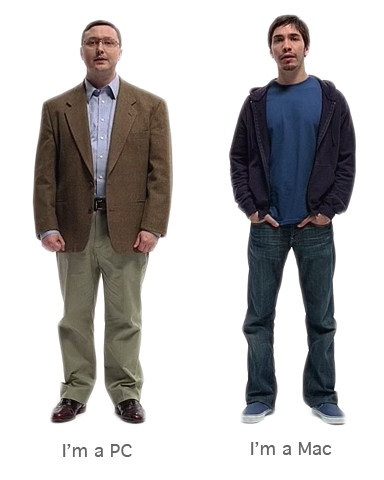Earlier this week, I wrote my first column for the Daily Vidette titled “Why I will never buy an Apple product.” Just with the headline alone, I knew I was about to spark a deep-rooted debate between Mac and PC owners. What I did not know was that such a debate would strike a chord with Apple users that led to distasteful online comments and emails that day. Everything from “How were you accepted to college?” to name calling, including moron and “retard,” were thrown my way.
Through the Vidette website, comments were submitted using pseudonyms and most comments were made with just a first name. With the rights of freedom of speech, I recognize everyone has the right to say what we feel and try to make good arguments over their values or beliefs. However, how far can freedom of speech go until someone gets hurt?
 Let me say that at first, I was somewhat offended at the name-calling and lack of actual argumentation against my talking points. However, throughout the day, I let it go and started to receive more positive comments. By the next day, the topic had lost some momentum and was not an issue for me anymore.
Let me say that at first, I was somewhat offended at the name-calling and lack of actual argumentation against my talking points. However, throughout the day, I let it go and started to receive more positive comments. By the next day, the topic had lost some momentum and was not an issue for me anymore.
But, the comments I received for the column were not as hurtful as other comments some people send that are considered cyberbullying. We have seen stories of young gay teens and adults who take their own lives after receiving threats online through social media. There have been campaigns like the “It Gets Better” project and the founder, Dan Savage, stopped at ISU last semester to talk about cyberbullying.
Clearly this is a growing problem as some people realize they can hide behind an anonymous name and say whatever they would like to someone they do not even know. The power of freedom of speech is great and many people take it for granted. Working at a newspaper and publishing my own thoughts is something many people around the world do not get to experience. Reaching audiences on campus and sparking conversations between people is the main goal I have, but the feedback I received was quite unexpected.
It is so easy to write something online that is rude or even hateful to someone but actually saying it to their face, especially to a complete stranger, is much harder. I seriously doubt I would have been called stupid or a moron if the comment posters had to actually say it to me in person.
Instead of calling me names or insulting the fact that I am in college, I would have much rather received feedback on my actual arguments. It was a low blow and almost reinforced my arguments in the story that people are so devoted to their brand they are blind to arguments against it. That being said, with the comments being posted on a ISU website, I think they make the ISU student population look bad. Even though maybe some of the posters were not students or even from the area, they were still posted on a college newspaper site. Anyone who read those comments that did not go to ISU might have a bad impression on our school.
However, anyone can openly share their opinions as part of freedom of speech. But just because people have a right to say what they want does not mean they should type and submit the first thought that comes in their head. We all say things to ourselves that would sound horrible out loud but we keep those thoughts to ourselves to not be embarrassed or offend anyone.
At the Daily Vidette, we have a comments section simply for readers to react to what is being said and hopefully give good critiques on the author’s arguments. It is not there to publicly insult the writer and in turn cause drama online with other readers. Later on in the day, more people were posting comments on what was being said rather than my column. Most people were challenging the readers who were name-calling me with actual arguments against why Apple products may not be the best choice for everyone.
This gave me hope there are still people interested in saying their opinions but also giving good arguments and not just reacting in a way that insults the author’s intelligence. In the end, every week I know I will face the same scrutiny for what I write just like the other Vidette columnists. However, just because an online comment is anonymous does not mean it will be any less offensive. Said to the wrong person, it could cause devastating effects.